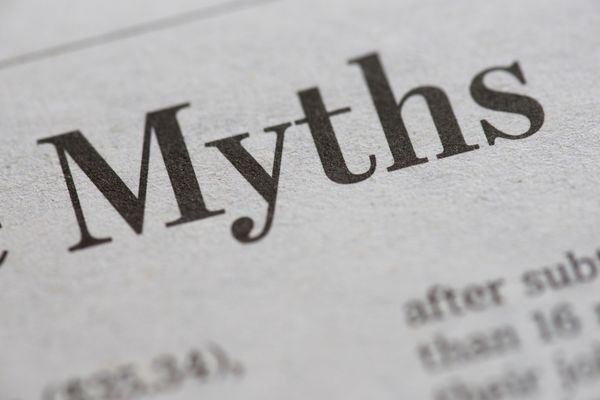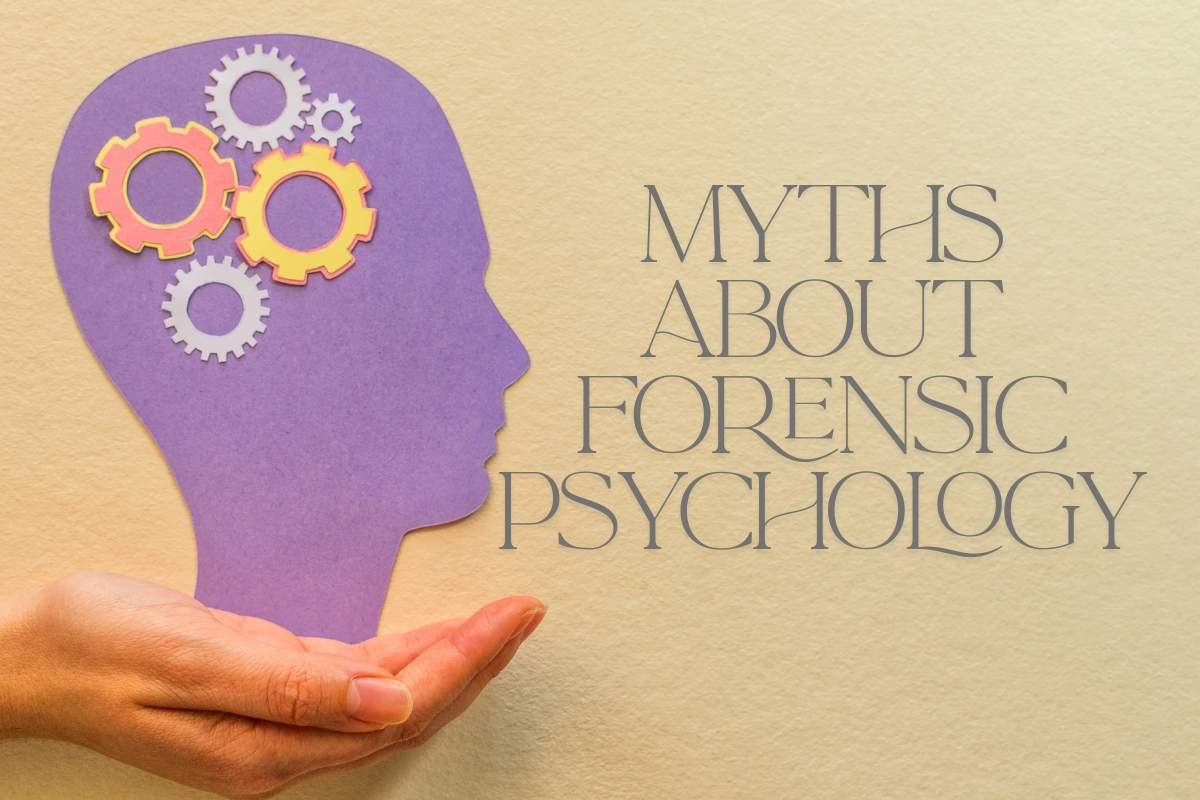10 Common Misconceptions About Forensic Psychology
Forensic psychology is the application of psychological expertise to legal matters, where professionals assess defendants’ mental states, determine competencies, and provide expert testimony in courts, not the dramatic criminal profiling often depicted in fiction. Understanding the true nature of this field is crucial, which is why forensic psychology experts work tirelessly to bridge the gap between public perception and professional reality.
Unlike popular portrayals, forensic psychologists don’t investigate crime scenes, interrogate suspects, or work as primary criminal profilers. Instead, they conduct structured mental health evaluations, assess risk using validated tools, and bridge the gap between psychology and law through evidence-based practices. Their work focuses on determining whether defendants understand their crimes, can participate in trials, and meet legal criteria for various mental health considerations.
This evidence-based profession requires dual expertise in clinical psychology and legal systems, with clear professional boundaries that separate their advisory role from active criminal investigation. Understanding these distinctions helps writers, media creators, and the public appreciate the vital yet specialized nature of forensic psychology in ensuring fair legal proceedings.

10 Myths About Forensic Psychology and the Truth
Forensic psychology applies psychological research to legal situations. These professionals typically work in courts or prisons. They assess defendants’ mental states and determine legal competencies. Their expertise bridges psychology and law in unique ways, often requiring specialized forensic evaluations that go beyond standard clinical practice.
Most forensic psychologists evaluate whether defendants understand their crimes. They also check if defendants can participate in trials. These assessments require specialized training and experience. Additionally, they might predict future violence risks or advise on false confessions. The American Psychology-Law Society provides essential guidance for these complex assessments.
1. They Work as Criminal Profilers
Many writers incorrectly show forensic psychologists as primary profilers. The FBI already provides behavioral analysis services to jurisdictions. Most detectives receive profiling training at the FBI Academy. Britain trains behavioral investigative advisors, but they mainly collect data.
Research psychologists occasionally consult on specific crime types. However, they rarely lead profiling efforts in real cases. Detectives handle most criminal behavioral analysis themselves. This misconception undermines the actual detective work involved. The American Board of Forensic Psychology clearly defines the scope of practice for certified professionals.
2. They Investigate at Crime Scenes
Fiction often shows forensic psychologists examining crime scenes directly. In reality, they review crime scene photos for reports. They don’t examine bodies or advise on arrests. Their work happens away from active investigation sites, typically in clinical settings where they conduct neuropsychological evaluations and other assessments.
Crime scene investigation remains the domain of detectives and technicians. Forensic psychologists focus on mental health evaluations instead. This separation maintains professional boundaries and expertise areas. Their clinical training doesn’t include crime scene processing.
3. They Create Individual Profiles
Writers sometimes show psychologists profiling specific known individuals. True profiling analyzes crime scenes and victim information. It identifies likely perpetrator characteristics, not specific people. The process involves behavioral reconstruction and pattern analysis.
Body language analysis differs completely from criminal profiling work. Profiles describe perpetrator types, not individual suspects already identified. The phrase “doesn’t fit the profile” misunderstands profiling’s purpose. Profiles emerge from crimes, not before them. The American Academy of Forensic Psychology provides continuing education on these important distinctions.
4. They Perform Courtroom Therapy
Fiction sometimes depicts dramatic courtroom hypnosis or therapy sessions. Real forensic psychologists explain complex psychological concepts to juries. They don’t approach or hypnotize defendants during trials. Professional ethics prevent revealing client session content without permission. Instead, they might provide therapy services in appropriate clinical settings outside the courtroom.
When treating clinicians testify, they’re not acting as experts. They might explain motivations or mental health conditions. Their role involves clarification, not therapeutic intervention. Courtroom therapy sessions simply don’t happen in reality. The American Board of Professional Psychology maintains strict ethical guidelines for forensic practice.
5. They Interrogate Criminal Suspects
Some stories show psychologists replacing detectives during interrogations. While psychologists might advise on interrogation techniques, they don’t conduct them. Detectives handle suspect questioning based on their training. Psychologists remain consultants, not primary interrogators.
This misconception overlooks the specialized interrogation training detectives receive. Forensic psychologists lack law enforcement authority for suspect questioning. Their expertise lies in assessment, not criminal investigation. The roles remain distinctly separate in practice. When needed, they conduct clinical psychological evaluations in controlled environments.
6. All Forensic Professionals Do Similar Work
Writers often confuse forensic psychologists with psychiatrists, criminologists, and criminalists. Psychiatrists hold medical degrees and prescribe medications. Psychologists cannot prescribe drugs and focus on behavioral assessment. Each profession requires different education and training paths. The American Psychological Association clearly delineates these professional boundaries.
Criminologists study crime patterns from sociological perspectives. They develop crime prevention strategies based on social factors. Criminalists analyze physical evidence from crime scenes. These distinct roles require specific expertise and training, including specialized psychoeducational testing for certain assessments.
7. Police Psychologists Lead Profiling Teams
Police departments employ clinical psychologists for officer support services. They conduct fitness evaluations and provide counseling services. These psychologists manage stress and critical incident debriefings. They don’t participate in criminal profiling activities.
Their role focuses on officer mental health and wellness. They might advise during hostage situations or provide training. However, detective teams handle criminal investigations and profiling. Police psychologists support officers, not investigations directly. The Florida Association of Psychology provides guidelines for these specialized roles.
8. They Always Detect Deception
Fiction often portrays psychologists as human lie detectors. Research shows psychologists can’t reliably spot liars without specialized training. Even deception researchers acknowledge significant limitations in detection abilities. Clinical training doesn’t automatically confer lie detection skills.
Detectives also overestimate their lie detection abilities despite training. Human deception remains complex and difficult to identify consistently. Technology and behavioral analysis provide limited assistance. No profession possesses foolproof deception detection abilities. This is particularly relevant in personal or emotional injury evaluations where credibility assessment is crucial.
9. They Declare Defendants Insane
Modern forensic psychologists don’t use “insane” as a diagnosis. Insanity represents a legal finding, not a medical condition. Psychologists describe mental states during alleged crimes. Judges or juries determine if conditions meet the insanity criteria. The National Association of Neuropsychology provides standards for these complex evaluations.
Each state maintains different legal insanity standards. Some states don’t recognize insanity defenses at all. Forensic psychologists provide information about mental conditions. The legal system makes ultimate determinations about criminal responsibility. In specialized cases, they may conduct immigration evaluations that require different legal standards.
10. They Predict Violence Without Assessment Tools
Fiction shows psychologists making instant violence predictions. Real risk assessments require standardized tools and comprehensive evaluations. These assessments examine multiple life areas systematically. Even specialists acknowledge prediction limitations and timeframe restrictions.
Long-range violence prediction remains highly uncertain despite assessment tools. Best practices demand structured approaches using validated instruments. Clinical judgment alone proves insufficient for reliable predictions. Violence risk assessment represents a complex, imperfect science requiring careful methodology. The Florida court system relies on these evidence-based assessments.

Understanding the Real Profession
Forensic psychology is a specialised field that combines clinical mental health expertise with a deep understanding of the legal system. Professionals in this area operate at the intersection of law and psychology, offering courts vital mental health assessments that can shape decisions on competency, criminal responsibility, and sentencing. Their insights help ensure fair and ethical proceedings, safeguarding the rights of both defendants and victims while supporting justice as a whole. The Florida Supreme Court recognizes the importance of qualified forensic psychological testimony.
Although often depicted in books, films, and television as fast-paced and dramatic, the real work of forensic psychologists is more structured, deliberate, and evidence-driven. Writers seeking to portray the field authentically should explore genuine forensic psychology practices, as doing so enhances credibility and honours the dedication of these experts. Many professionals also provide attachment and bonding assessments in family court matters.
The profession continues to evolve alongside research into human behaviour, mental health disorders, and their legal implications. Forensic psychologists perform tasks such as evaluating mental competency, assessing risk, and providing expert testimony. However, their scope is clearly defined, and they do not act as investigators or decision-makers. Services like family therapy and co-parenting counseling represent the diverse applications of forensic psychology expertise.
By understanding these boundaries, creators can offer realistic portrayals that inform rather than mislead. Accurate depictions not only engage audiences but also foster respect for the profession’s essential role in the justice system. The Florida Board of Psychology maintains standards ensuring professional integrity.
Key Points to Remember About Forensic Psychology:
- Dual Expertise – Forensic psychologists combine mental health knowledge with legal system familiarity, making them uniquely qualified to assess psychological issues in legal contexts.
- Primary Functions – They provide evaluations for competency, criminal responsibility, risk assessment, and psychological damage in both criminal and civil cases, sometimes including reunification counseling in family matters.
- Role in Fairness – Their assessments can influence court decisions, ensuring justice is served with consideration for mental health factors.
- Defined Boundaries – They do not act as investigators, detectives, or decision-makers; their role is advisory and evaluative.
- Evidence-Based Work – Conclusions are drawn from established psychological tests, clinical interviews, and research-supported methods, including cognitive behavioral therapy techniques when appropriate.
- Evolving Profession – Advances in psychology, neuroscience, and law continually shape their work and methods.
- Accuracy in Writing – Authors should research the profession thoroughly to avoid exaggerations and misrepresentations. For more information about forensic psychology practice, contact us to learn from experienced professionals.
- Ethical Responsibility – Misleading portrayals can distort public perception, while accurate depictions promote respect and understanding.
In short, forensic psychology is a vital yet specialised profession that plays a key role in the justice system. Capturing its essence requires both respect for the field’s boundaries and an appreciation of its impact on fair legal outcomes. To learn more about us and our approach to forensic psychological services, visit our comprehensive resource center.
Conclusion
Forensic psychology’s role in the justice system is far more precise, structured, and legally focused than crime fiction often suggests. These professionals do not act as detectives, profilers, or interrogators. Instead, they apply clinical expertise to legal contexts, providing courts with thorough, evidence-based evaluations that help determine competency, assess risk, and clarify psychological factors relevant to cases. By adhering to strict professional boundaries, forensic psychologists safeguard the integrity of both the psychological and legal processes. Misrepresenting their work can create public misconceptions and diminish appreciation for the profession’s complexity. Accurate portrayals not only enhance credibility in storytelling but also promote understanding of how forensic psychology truly supports justice. Recognizing the field’s limits and responsibilities ensures that its real contributions, grounded in science, ethics, and legal knowledge, are given the respect they deserve.
FAQs
Do forensic psychologists work as criminal profilers?
No. While they may sometimes offer input on behavioral traits, criminal profiling is usually the domain of law enforcement specialists.
Do they investigate crime scenes?
No. They work from evidence already collected, focusing on reports and photos rather than physical investigation at the scene.
Can forensic psychologists declare someone legally insane?
No. They assess a defendant’s mental state, but judges or juries decide if the legal criteria for insanity are met.
Are they trained to detect lies instantly?
No. Human deception is difficult to identify reliably, and psychologists are not infallible lie detectors.
Do they conduct interrogations?
No. Interrogations are handled by detectives, though psychologists may sometimes advise on effective questioning strategies.

